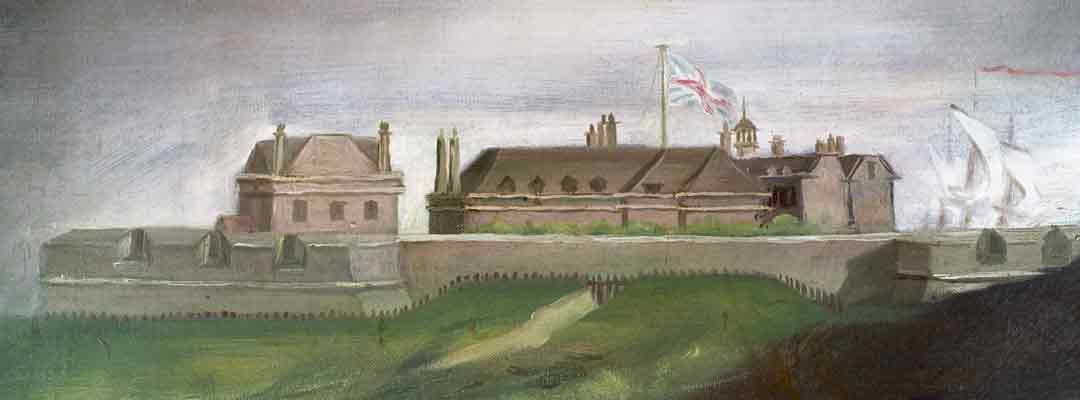Philip Thicknesse, Landguard's Loosest Cannon
How Philip Thicknesse finally got his comeuppance after a madcap life of self-inflicted scandal in 18th-century England.

LARGER THAN LIFE
‘To anyone who has made a close study of Philip Thicknesse,’ wrote his 20th-century biographer, ‘there come occasions when he can but marvel that nobody ever shot him or bludgeoned him to death.’
A cursory glance at the story of Thicknesse’s life makes it pretty difficult to disagree with such an assessment. He emigrated to America when he was just 16 and lived ‘a true Robinson Crusoe line of life’ in a wooden cabin, alone on an island. He married three times in 20 years after returning to England, prompting his first mother-in-law to commit suicide by hurling herself out of a window onto some iron railings on the very spot where Thicknesse had – quite literally – abducted her daughter.
He published bizarre books including a guide to healthy living in which he recommended the frequent inhalation of ‘the breath of young women’, and a three-volume denunciation of his own son, entitled Memoirs and anecdotes of Philip Thicknesse, late governor of Landguard Fort, and unfortunately father to George Touchet, Baron Audley.
AN OFFICER BUT NO GENTLEMAN
In 1753, Thicknesse decided to use a sizeable portion of the dowry from his second marriage to purchase the lieutenant governorship of Landguard Fort in Suffolk.
Once installed in his new position, he began to engage in a favourite hobby: goading rival authority figures. A decade of skirmishes culminated in a sustained feud with one Colonel Francis Vernon of the Suffolk militia (later Lord Orwell) which took on unprecedented dimensions, even for Thicknesse.
He went as far as to buy a printing press with the sole aim of publishing materials designed to sabotage Orwell’s election hopes in Ipswich. (He later cited the threat of his libellous printing press during an even more audacious attempt to blackmail the Prime Minister, John Stuart, the Earl of Bute.)
THE AFFAIR OF THE WOODEN GUN
The straw that broke the camel’s back was Thicknesse’s decision to present Lord Orwell with a characteristically peculiar (but apparently deeply offensive) gift: a cannon-shaped chunk of flotsam.
Thicknesse was tried for libel in 1763 and imprisoned for three months. Somewhat surprisingly, he was allowed to resume command of Landguard Fort once he had served his sentence, and wasted no time in bringing ridiculous charges against the officer who had been in charge during his absence. He was sentenced to a public reprimand in 1765, and judged unfit for command in 1766.
He returned to a life of writing, later exhibiting the wooden gun, labelled with some depreciatory verses, in front of his house in Bath.
By Sam Kinchin-Smith
